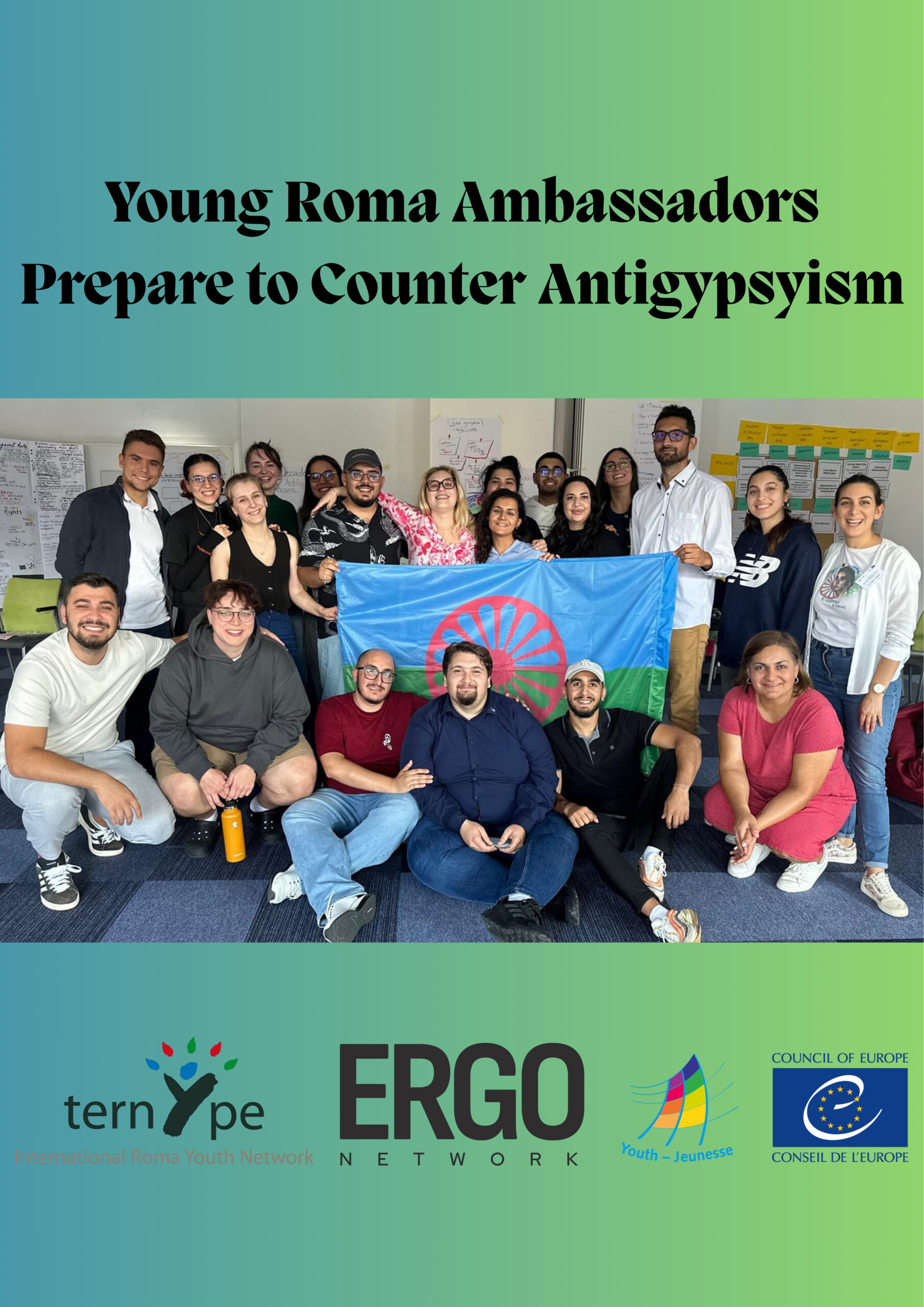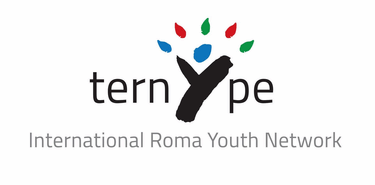
From September 21 to 28, the European Youth Center in Budapest hosted a study session dedicated to preparing a new generation of ambassadors to counter antigypsyism. The event was organized by ERGO Network and ternYpe, with support from the Council of Europe.
Twenty-two participants from Hungary, Ukraine, Bulgaria, Belgium, Romania, North Macedonia, Serbia, Bosnia and Herzegovina, Kosovo, United Kingdom, Czech Republic, Sweden and Ireland took part in a week of focused learning, reflection, and planning.
Why this study session mattered?
Antigypsyism continues to shape the lives and opportunities of Roma community across Europe.The study session aimed to train future Roma and non-Roma ambassadors who can recognize antigypsyism, speak about it with clarity, and take action. The initiative was part of the Decade Against Antigypsyism and directly contributes to the Council of Europe Roma Youth Action Plan, which promotes youth participation and equality.

What participants did?
Throughout the week, participants explored how antigypsyism appears in education, employment, media, and public institutions. They learned how to analyze structures of discrimination and translate this understanding into practical advocacy. Sessions combined conceptual input, peer dialogue, and creative workshops. Guest speakers provided valuable insights and inspiration. Gabriela Hrabanova discussed the terminology and conceptual framework of antigypsyism, clarifying how the term entails systemic and historical dimensions of discrimination. Mustafa Jakupov examined the roots of antigypsyism and emphasized the importance of reporting and documenting incidents. Toby Gorniak screened his short film That Boy, sparking dialogue on representation and resilience through art. Roxhers Lufta shared practical guidance on campaign building, offering participants concrete strategies to plan, structure, and communicate effective advocacy actions.
What changed by the end of the week
By the final day, participants could clearly define antigypsyism and explain how to address it through collective action. They drafted several concrete initiatives: a podcast series, a collection of articles, a concept for a reporting platform, and campaign ideas to challenge antigypsyism in everyday life and public debate. These outputs are now being finalized and will soon be published on the organizers’ platforms. ERGO Network and ternYpe will continue to support the ambassadors as they develop and share their work.

A voice from the room
Chelsea Mac Donnchadha reflected on her experience:
“We dug into what antigypsyism looks like in daily life, how it impacts our communities, and how we can resist through activism and solidarity. There is so much more that unites us than divides us. The work doesn’t stop here.”
What comes next?
The Ambassadors of the Decade will now move from training to action. In the coming days, they will launch their public outputs and continue building collaborations under the Decade Against Antigypsyism and the Council of Europe Roma Youth Action Plan.
Partners and institutions interested in contributing expertise or visibility are invited to
contact ERGO Network and ternYpe for cooperation opportunities.
Acknowledgments
ERGO Network and ternYpe thank the Council of Europe for its support and all facilitators
and participants for their dedication throughout the study session. The program was
facilitated by Annamaria Psenkova, Donald Myrteli, Georgina Laboda, and Martina
Horváthová, who also served as the Course Director. Educational guidance was provided by
Zóra Csalagovits from the Council of Europe Youth Department.
